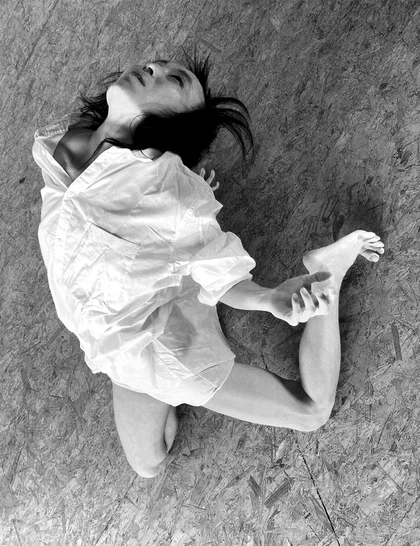Butoh originated from Japan. Unfortunately, it is not yet well known in Belgium.
Dancer Tatsumi Hijikata created it in the late 1950s. Influenced by the European Expressionist movement, then by the "writers of hell": Bataille, Genet, Sade, Lautréamont, he returned to his peasant origins to nourish his dance and invest the Japanese body.
The background:
T. Hijikata was born in 1928 in northern Japan, where there were only rice fields. It was very cold for half the year. The region's people had a lot of children, but many didn't survive.Their life expectancy was short. When they went to work, women carried their children in baskets on their backs.The mothers then left their children near the rice fields and abandoned them all day to their fate. The children cried, but the rice field was so large that their mothers couldn't hear them.The body of the child then shrank in the basket, twisted and deformed: this was the beginning of the Butoh body.
In this dance, a very Japanese aesthetic of imperfect and unfinished movement are there. It is not a purposeful perfection in search of asymmetry, but a complete imperfection.
When we appreciate the "incomplete", a future could be possible.
Butoh is about transformation (becoming). The state of the body between life and death.
10€ par cours
45€ par semaine
Les Workshops et Morning classes sont dorénavant payables sur place. Ils ne sont ni remboursables, ni échangeables.
Il est vivement conseillé de s’inscrire préalablement via l’adresse Ludovica@charleroi-danse.be
En cas d’absence 15 minutes avant le début de votre workshop ou morning class Charleroi danse se réserve le droit de libérer votre place et de la réattribuer.
Merci pour votre compréhension
